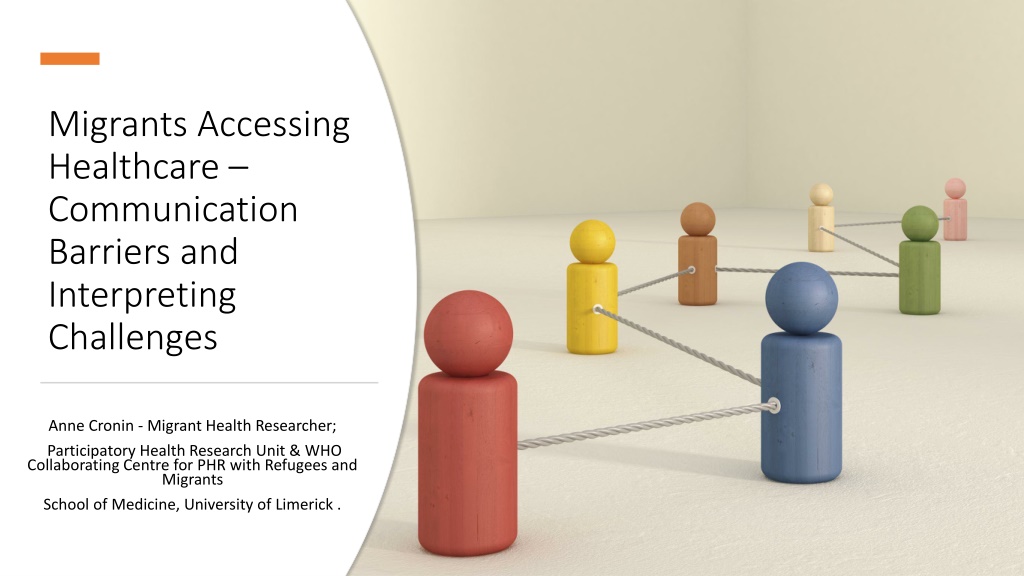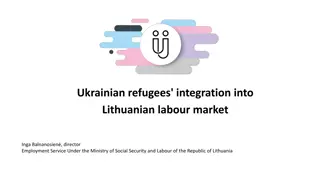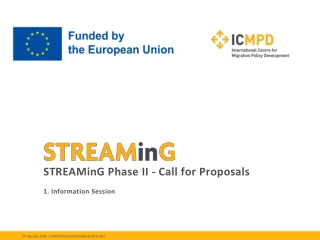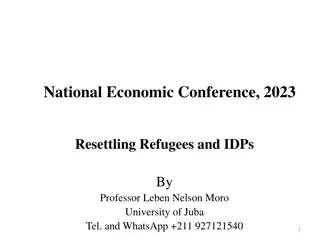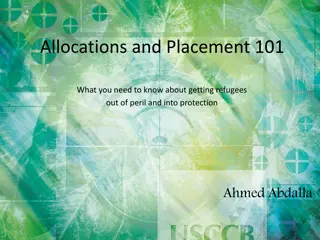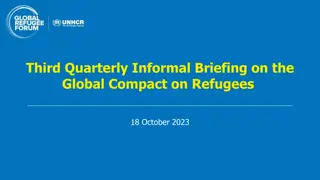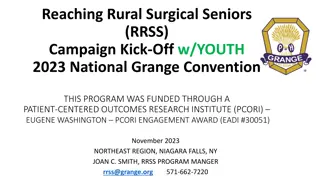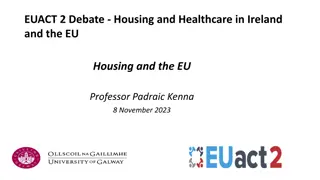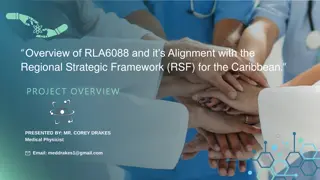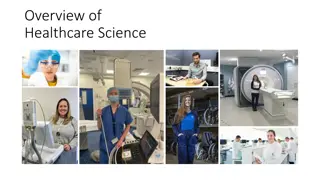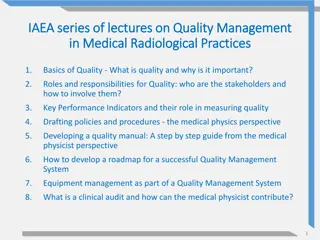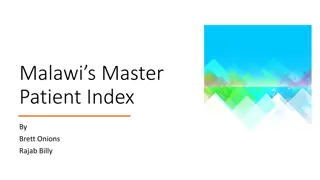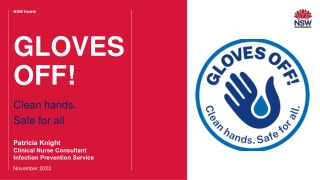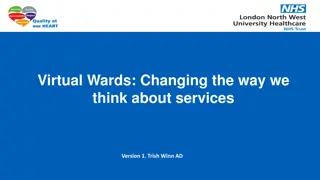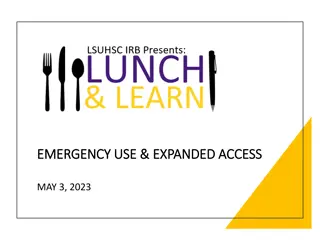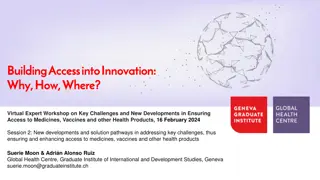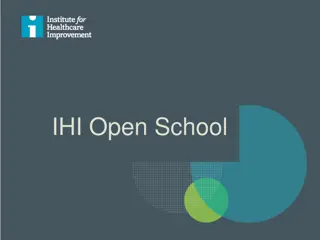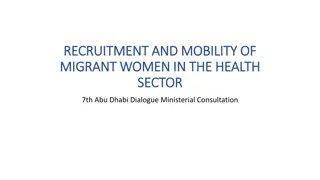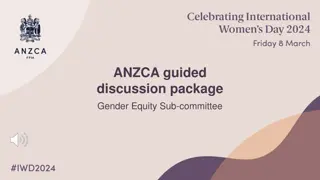Healthcare Access Challenges for Migrants and Refugees in Ireland
Increased migration to Ireland due to climate change and geopolitical conflicts has led to challenges in healthcare access for migrants and refugees. Language and cultural barriers, limited availability of trained interpreters, and unregulated interpreting services contribute to difficulties in providing quality care. Efforts are being made to increase the use of interpreters, but more structured approaches are needed to ensure effective communication and patient safety.
Uploaded on Jul 02, 2024 | 0 Views
Download Presentation
Please find below an Image/Link to download the presentation.
The content on the website is provided AS IS for your information and personal use only. It may not be sold, licensed, or shared on other websites without obtaining consent from the author. Download presentation by click this link. If you encounter any issues during the download, it is possible that the publisher has removed the file from their server.
Presentation Transcript
Migrants Accessing Healthcare Communication Barriers and Interpreting Challenges Anne Cronin - Migrant Health Researcher; Participatory Health Research Unit & WHO Collaborating Centre for PHR with Refugees and Migrants School of Medicine, University of Limerick .
Climate change, geopolitical conflicts, have resulted in more migration than ever before. Migration intersects with many SDGs across the 2030 Agenda. Increasing numbers of primary care providers are serving linguistically and culturally diverse patient populations due to growing numbers of refugees and migrants coming to Ireland. Currently ~74,000 Ukrainian BoTP and 21,000 International Protection applicants residing in reconfigured accommodation centres throughout Ireland, a number of whom have limited English proficiency which can impact patient safety and health outcomes (World Health Organisation 2018). The 2022 census data highlights that 751,507 people spoke a language other than English or Irish at home, representing an increase of 23% from 2016; 11% of whom indicated that they did not speak English well and 2% did not speak it at all. Accordingly, people with limited English- language proficiency account for 1.9% (n= 97,695) of the overall Irish population. The World Health Organisation (WHO): modern healthcare systems should be available and appropriate to all languages and cross-cultural consultations (i.e., consultations where the doctor and patient do not have a shared language and cultural background) should be planned for and accessible. Context
Migrant and refugee access to health care in many countries is determined by legal frameworks and the regulation of the migration process itself. Despite the obligations and instruments that pertain to protect migrants access to healthcare, many countries appear to fall short in the space between developing a policy on the right to equal healthcare and the provision of such healthcare, i.e., the implementation gap. Access to Health Recent findings from the WHO indicate that Ireland is one of seven countries with comprehensive policies that include migrants and refugees in healthcare services but continues to have very low availability of trained and accredited interpreters, a vital component of accessible healthcare. It s a supply and demand issue low levels of demand = low availability of interpreters. Interpreting and translation services currently unregulated in Ireland, unlike N. Ireland and other EU countries.
On the ground Increase in use of interpreters / translators in Ukrainian accommodation centres and health centres is creating awareness amongst clinicians and other healthcare professionals regarding the value of providing interpreters for patients with low levels of English proficiency. However, extent of training and competency levels are unclear. Currently many interpreters are bilingual Ukrainian BoTP employed by the HSE. Availability of interpreters for non-Ukrainian / Russian speaking patients remains ad hoc and informal with no consistent approach. Continued use of informal and sub-optimal means of communication across primary and secondary care: using family, friends to interpret for the patient as well as online translation tools (google translate), body language and gesturing and sometimes staff from the clinic that possibly speak the same language, cleaner, admin, etc.
When patients do not understand what is happening; Incomplete information exchange Inappropriate diagnosis and treatment More medication errors Higher emergency department use Longer hospitalisations Non-adherence of patients to suggested therapies Missed opportunities for health promotion and disease prevention Higher healthcare costs due to inefficient use of resources i.e., repeat appointments, unnecessary tests. Lower levels of trust which is a key component of patient / doctor relationship. Why do we need interpreters?
Responsibility Public Sector Equality and Human Rights Duty the State has a legal responsibility to deliver equal access to healthcare services for service users from diverse ethnic, cultural and religious backgrounds. Statutory obligation on public bodies to eliminate discrimination, promote equality of opportunity and protect the human rights of those to whom they provide services and staff when carrying out their daily work HSE National Intercultural Health Strategy - prioritises the use of trained interpreters in the healthcare system. Recent research in UL (conducted by the PART-IM research cluster) asked migrants to highlight their healthcare research priorities indicated that communication problems remain an urgent issue for patients and that trained interpreters are needed. Recent HSE & Pavee Point Roma Doja launch heard speakers including clinicians and patients highlight that access to interpreters is a prohibitive factor for Roma women accessing healthcare. we cannot continue having children translating for their parents
Routine use of Ukrainian and Russian speaking translators / interpreters in GP clinics in Ukrainian accommodation centres and health centres presents an opportunity to study the value of interpreted consultations and the role of an interpreter in GP practice. New study to begin to analyse interpreted consultations with Ukrainian BoTP in GP practices conducted by DCU and UL. Area of interest for the Participatory Health Research unit in UL which includes; WHO Collaborating Centre for Migrants Involvement in Health Research Participatory and Arts-Based Methods Involving Migrants in Health Research. Research project led by Prof Anne MacFarlane (UL), Dr. Mary Phelan (DCU), Anne Cronin RA. Research will inform WHO and Dept. of Health. Research moving things forward.
